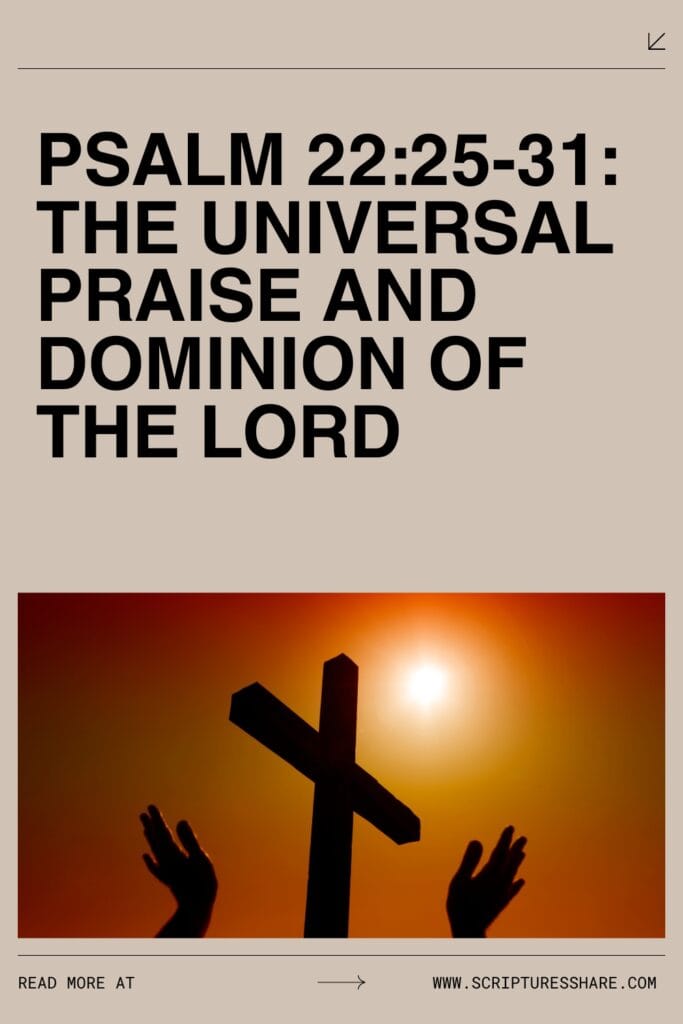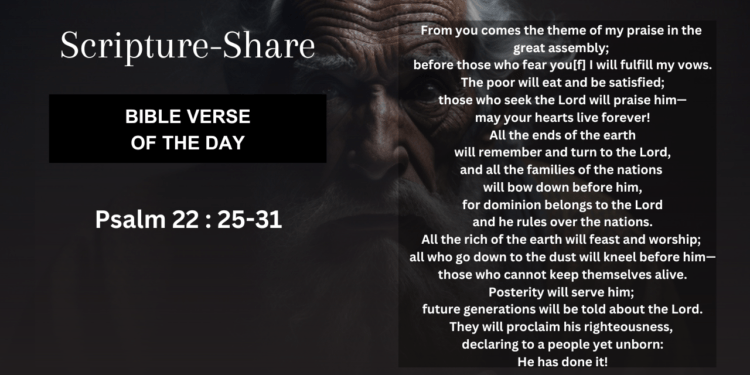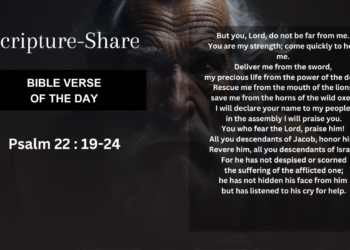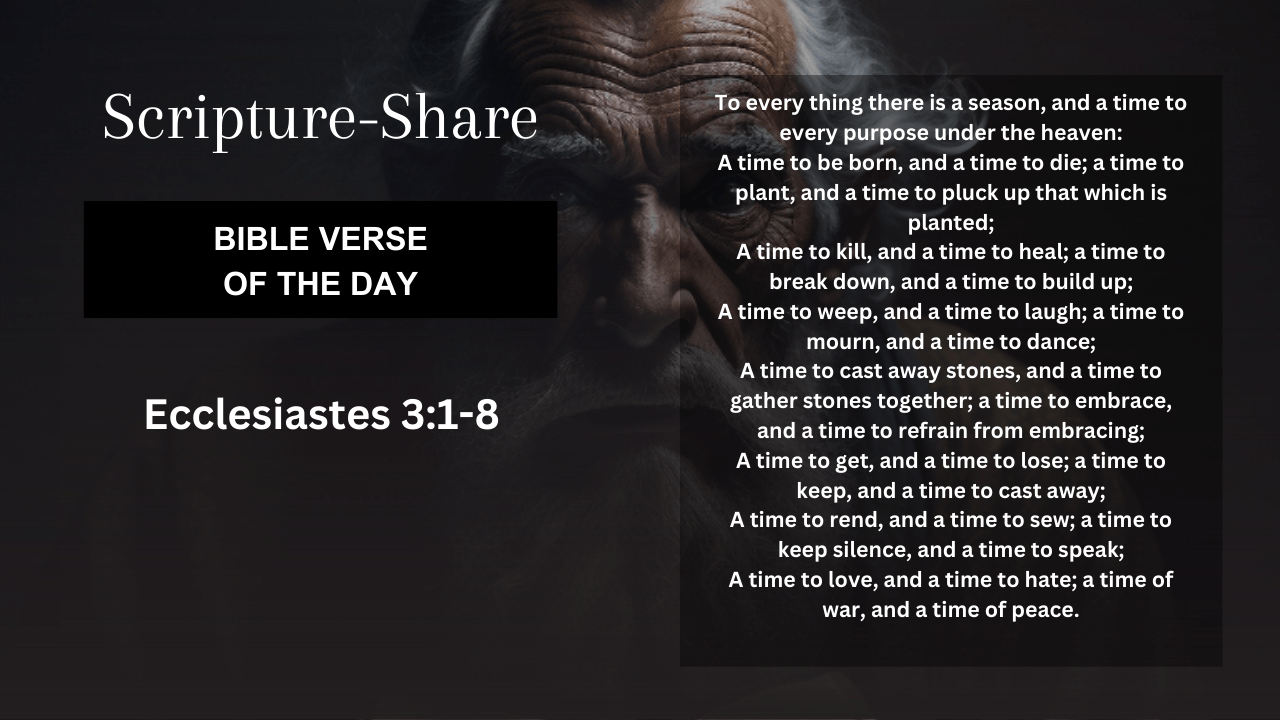No products in the cart.
Psalm 22:25-31: The Universal Praise and Dominion Of The Lord
This post contains paid and/or affiliate links. I make a small commission at no extra cost to you. Please see our Privacy Policy.
Psalm 22:25-31 talks about praising God and recognizing His power. The psalmist says his praise comes from God. He will keep his promises in front of those who fear the Lord.
This shows the value of keeping vows to God in a community setting. It’s about honoring our promises to God with others around.
“Praise to God is not just a personal act but a communal declaration of His faithfulness. When we honor our vows to Him, we inspire others to seek His righteousness and find fulfillment in His love.”
The needy will get food and be satisfied, and those looking for the Lord will worship Him. This means more than just food. It’s about spiritual fulfillment and eternal life. It shows God cares for those who seek Him.
The psalmist then talks about praising God all over the world. Everyone, rich or poor, will celebrate and worship. Even those who can’t live on their own will bow down to Him.
This shows God’s power is for everyone, no matter their situation. It’s about God’s love for all people.
“God’s care transcends every boundary—feeding the needy, satisfying the seeker, and welcoming all into His eternal promise. His love reaches every heart, rich or poor, and calls us to praise Him together.”
The psalm ends with a message for future generations. They will serve the Lord and share His goodness. It’s about keeping faith alive from one generation to the next.
In short, Psalm 22:25-31 talks about praising God everywhere. It’s about abundance, satisfaction, and welcoming everyone. It encourages us to keep our vows and share God’s righteousness.
“Faith is a legacy. Psalm 22 reminds us to live in a way that not only honors God today but also inspires future generations to celebrate His goodness and serve Him faithfully.”














